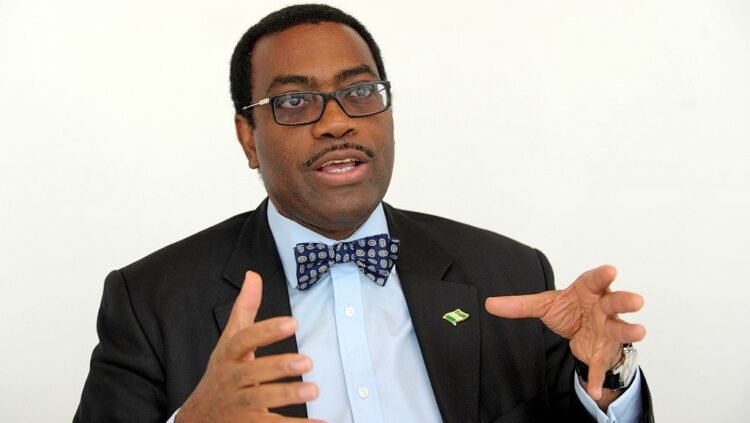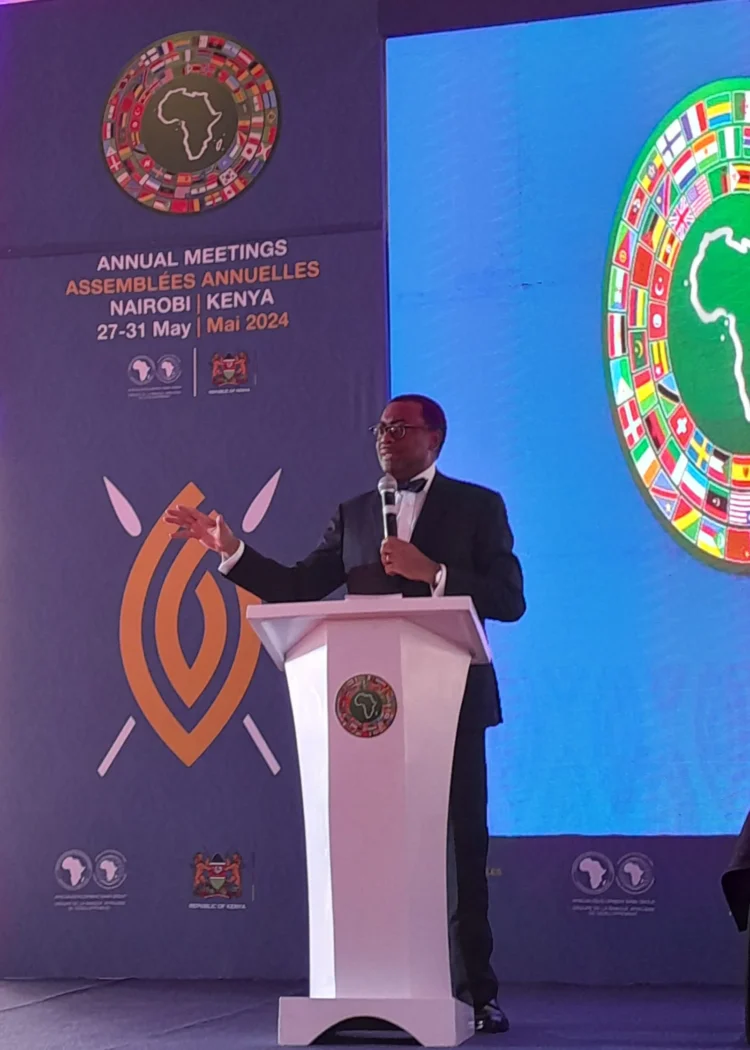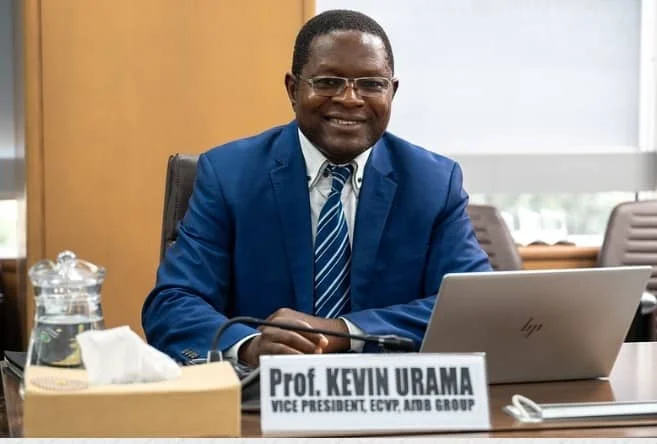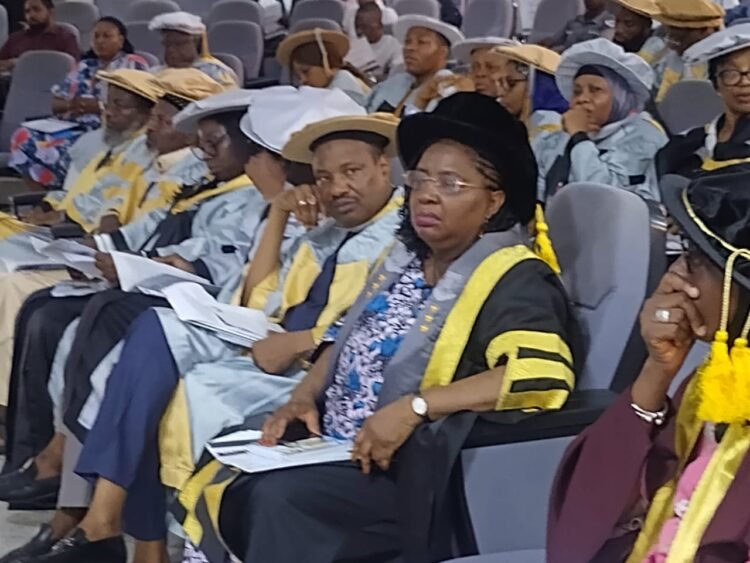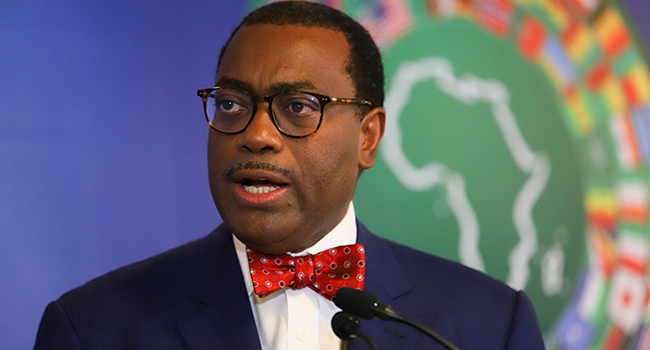AfDB @60: Bank reaffirms commitment to Africa’s transformation
By Lucy Ogalue
The African Development Bank (AfDB) Group President, Dr Akinwumi Adesina, has reaffirmed the bank’s commitment to continue to deliver at scale to countries in the continent.
Adesina said this at the sideline of an event to celebrate the bank’s 60th anniversary.
The event was held on the sidelines of the ongoing 2024 AfDB Annual Meetings in Nairobi.
”On the walk of the bank, with the journey we have travelled in supporting Africa and the one yet to be embarked on, one thing is sure that we are on the right path.’
”A journey to accelerating the development of Africa. Amazingly, in the 60 years that we have been travelling this journey, we are not yet tired.
”Just like Kenyans always run and win in long-distance races, so are we. We are running to win for Africa.
”In 60 years, we have not diminished; we have grown and are delivering at scale for Africa,” he said.
The AfDB president said the bank began its journey with nine countries and advanced to 23 countries after its inauguration, but now, it counts about 81 countries.
According to him, the bank’s founding fathers dreamed of promoting and accelerating the economic and social development of African countries.
While commending the founders’ vision, Adesina said, “Their dreams have been realised, one strategy at a time, one president at a time.
”But it takes all of our shareholders, you, to support us in making things happen. You, as shareholders, celebrate with us today,“ he said.
Adesina said that the AfDB was a trusted voice for Africa and responsible for its needs.
He thanked various heads of state and governments for their continued support for the bank, and urged them to do more to transform the continent.
“I would like to close this time by congratulating His Excellency, President William Ruto for the wonderful announcement you made this morning by contributing to the African Development Fund (ADF).
“That will make you the largest contributor to that fund as a regional member. Thank you also for your bold call for a 17th fund replenishment at 25 billion dollars.
“It is so important in the AfDB that the Organisation of African Units gives it a clear mandate to mobilise development financing for Africa. And we are doing so with your collective support.
“In 2019, you, the bank’s shareholders, raised the bank’s capital 93 billion dollars to 208 billion dollars, the highest in the bank’s history since it was established in 1964. Thank you very much,” he said.
According to the AfDB president, the bank’s staff has been its strength, moving from 10 pioneer members in 1996 to 2,092 staff members.
“Today, from 17 to 6 countries, we all come with one goal in mind, to activate African development.
“Our Board of Governors and Board of Directors from 81 member countries have been the guiding light of the bank,“ he said.
He said that from an initial capital base of 2.3 billion dollars, the bank now maintained a triple-A rating and was the only triple-A-rated financial institution in Africa.
Adesina said the bank took pride in its humble beginnings and its current status as a globally respected institution, innovating and leading among global financial institutions.
“The African Development Bank is on the hybrid path from the global capital market, first-ever by a multilateral development bank, creating a new global asset class for institutional investment.
“It is the first and the only multilateral development bank to do synthetic decentralisation, transferring risks from our sovereign and non-sovereign portfolios to the private sector for institutional investment.
“In 2021, AfDB was ranked the best multilateral financial institution in the world by Global Finance.
“In 2022, the ADF, our concessional lending institution, was ranked the world’s second-best concessional financial institution by the Centre for Global Development, ahead of all eight concessional financial institutions,“ he said.
The AfDB president said the bank in 2022, was ranked the most transparent financial institution in the world by Corbett.
He said: “together, building on the foundations laid by our founders, we have built a global financial institution focusing on the assets, bringing the wealth to Africa and taking Africa to the world.
”Let us celebrate Africa’s development. Let’s accelerate it relentlessly. Africa deserves the best, and only the best is good enough for Africa. Happy 60th anniversary,” he said. (NAN) (www.nannews,ng)
===============
Edited by Deborah Coker/Joseph Edeh




